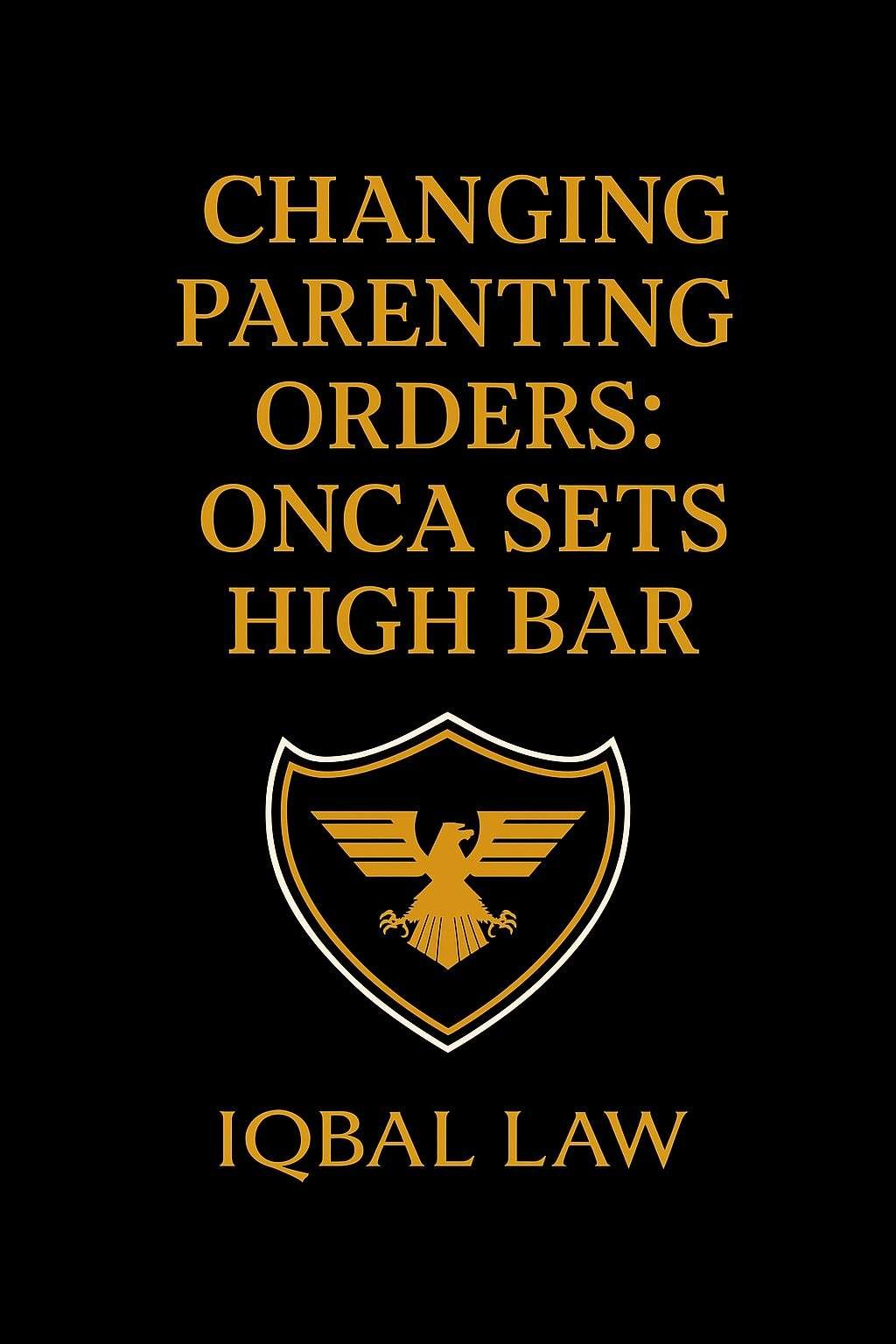
Introduction:
In family law, modifying parenting orders requires a significant threshold of proof regarding material changes in circumstances. The recent Ontario Court of Appeal decision in Kim v. McIntosh sheds light on these complexities, emphasizing the high standards courts apply when evaluating such requests.
Case Overview:
Kim v. McIntosh involves a dispute over parenting time and decision-making authority for four children, aged 7 to 16. The father resides in Australia, while the children live in Ontario with their mother. Initially, the court granted sole decision-making authority to the mother and limited the father’s parenting time to eight weeks annually, with restrictions on removing the children from Ontario.
Legal Background:
The appeal centered on whether the
father demonstrated a material change in circumstances justifying a variation of the original order. He argued that the children’s updated preferences and other alleged changes warranted increased parenting time and permission to travel with them to Australia. However, the court upheld the lower court’s decision, highlighting the ongoing risks associated with the father’s compliance and financial obligations.
Key Issues and Analysis:
- Material Change Standard: The court reaffirmed the stringent criteria under the Children’s Law Reform Act and Gordon v. Goertz, emphasizing that mere changes in children’s preferences do not automatically justify altering custody arrangements.
- Risk Assessment: Despite the children expressing desires to spend more time with their father and visit Australia, the court balanced these preferences against concerns of wrongful removal and the father’s history of non-compliance with court orders.
- Procedural Fairness: The court also addressed procedural issues raised by the father, affirming that minor differences in the notice of motion did not affect the outcome but underscored the importance of procedural adherence.
Conclusion:
Kim v. McIntosh underscores the complexity of family law decisions regarding parenting arrangements. It highlights the courts’ rigorous approach to evaluating material changes and the paramount importance of children’s best interests. Understanding these principles is crucial for anyone navigating family law disputes involving custody and parenting time.
Takeaway for Clients:
For individuals considering modifications to parenting orders, it’s essential to demonstrate substantial changes in circumstances and maintain compliance with court directives. Consulting with experienced legal counsel can provide invaluable guidance through this process.
For personalized guidance on family law matters, including modifications to parenting orders, contact IQBAL LAW. Our experienced team is dedicated to protecting your rights and achieving favorable outcomes in family law disputes.
DISCLAIMER: The information provided in this Blog is for general informational purposes only and does not constitute legal advice. No attorney-client relationship is established through this writing. You should consult with a qualified attorney for advice tailored to your specific situation. The lawyer and their firm disclaim any liability arising from reliance on this Blog or any other Blog on this website.